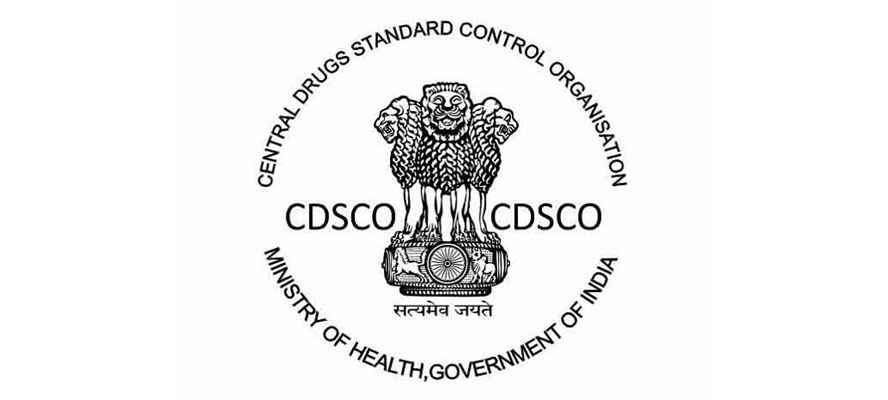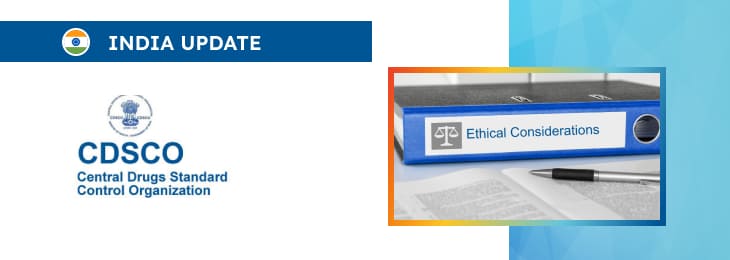The new article outlines the key ethical and safety considerations pertaining to clinical studies.

Table of content
The Central Drugs Standard Control Organization (CDSCO), an Indian regulating authority in the sphere of healthcare products, has published a guidance document dedicated to Good Clinical Practices. The document provides an overview of the best principles and approaches, as well as additional clarifications and recommendations to be considered by the parties responsible for clinical trials involving healthcare products in order to ensure compliance with the applicable legal framework.
Ethical and Safety Considerations in Clinical Research: Summary
First of all, the authority states that ethical and safety considerations are vitally important in any research involving human participants. Biomedical and health research is not only about advancing scientific knowledge but also about protecting the dignity, rights, safety, and well-being of those involved.
The draft guidelines on Good Clinical Practices (GCP) emphasize that research should be conducted according to a set of fundamental ethical principles, which ensure that participants are respected and safeguarded throughout the study. In particular, the document outlines the main ethical and safety considerations in clinical research.

Ethical Principles
Research involving human participants must adhere to four basic ethical principles: respect for persons (autonomy), beneficence, non-maleficence, and justice.
These principles are applied through the following 12 general principles, which guide all biomedical, social, and behavioral science research:
- Principle of Essentiality: Human participants should only be involved if their inclusion is essential, as determined by an independent ethics committee (EC).
- Principle of Voluntariness: Participation in research must be voluntary, with informed consent ensuring participants’ rights are respected.
- Principle of Non-Exploitation: Participants must be selected equitably, and safeguards must be in place to protect vulnerable groups from exploitation.
- Principle of Social Responsibility: Research must avoid creating or exacerbating social divisions.
- Principle of Privacy and Confidentiality: Participants’ privacy must be protected, and their data must remain confidential unless legally required to be disclosed.
- Principle of Risk Minimization: Risks must be minimized at every stage, with appropriate care and compensation if harm occurs.
- Principle of Professional Competence: Research must be conducted by qualified and competent professionals.
- Principle of Maximization of Benefit: Research should aim to maximize benefits for both participants and society.
- Principle of Institutional Arrangements: Institutions conducting research must provide adequate infrastructure, governance, and support.
- Principle of Transparency and Accountability: Research plans and outcomes should be transparent, and all stakeholders should disclose conflicts of interest.
- Principle of Totality of Responsibility: All stakeholders are responsible for their actions and must comply with ethical guidelines.
- Principle of Environmental Protection: Research should be conducted in a way that protects the environment.
Benefit-Risk Assessment
The assessment of benefits and risks is a key responsibility of the researcher, sponsor, and ethics committee. While benefits refer to favorable outcomes for individuals or society, risks involve the possibility of harm, which could be physical, psychological, social, economic, or legal.
Researchers and ethics committees must ensure that the risks are minimized and justified by the potential benefits. The ethics committee should evaluate whether the potential benefits of the study outweigh the risks.
Plans to minimize risk and discomfort should be in place before the research is approved. The ethics committee should continue to assess any changes in risk as the study progresses, ensuring that the balance of risks and benefits remains favorable.
Informed Consent
Informed consent is the cornerstone of respecting participants’ autonomy. The informed consent process includes three components: providing relevant information, ensuring comprehension, and securing voluntary participation.
The informed consent document must explain the study in simple terms and in the language understood by the participant. The consent form should outline the aims, risks, and benefits of the study, as well as the rights of participants to withdraw at any time.
In some studies, audio or video recordings of the consent process may be required. Additionally, verbal or re-consent may be necessary in certain situations, subject to approval by the ethics committee.
Privacy and Confidentiality
Maintaining the privacy and confidentiality of participants is crucial. Researchers are obligated to protect participants’ information from unauthorized access, use, or disclosure.
However, confidentiality may be breached under specific circumstances, such as legal requirements or public health risks. Personal data must be anonymized, especially when dealing with sensitive information such as HIV status or genetic data.
Limitations to confidentiality should be communicated to participants beforehand.
Distributive Justice
Distributive justice ensures that the burdens and benefits of research are distributed fairly among all participants. Vulnerable individuals should not be included in research solely to benefit others, and research should not lead to social, racial, or ethnic inequalities.
Plans for sharing direct or indirect benefits with participants or donors of biological material must be included in the research proposal.
Payment for Participation
Participants may be compensated for their time and expenses incurred during the research. However, care must be taken to ensure that payments do not amount to undue inducement.
Compensation policies must be reviewed and approved by the ethics committee to avoid exploitation. Participants should be reimbursed for any research-related expenses, but payments should not be so large that they influence participants’ decision to participate against their better judgment.
Compensation for Research-Related Harm
Participants who suffer physical, psychological, social, or economic harm as a result of research are entitled to compensation. Researchers must report serious adverse events (SAEs) to the ethics committee within 24 hours, and the committee is responsible for determining the appropriate compensation.
If harm occurs, participants should receive free medical care, and the sponsor or investigator is responsible for covering these costs. Compensation should also be provided in the case of permanent disability.
Special Considerations for Vulnerable Populations
Special attention must be given to vulnerable groups, such as children, pregnant women, economically disadvantaged individuals, or those with diminished autonomy. Research involving these groups must be designed to directly address their health needs and ensure that their rights and welfare are protected.
Research involving children or pregnant women requires careful ethical consideration, particularly in obtaining proxy consent and assessing the potential risks and benefits. Research involving marginalized communities must ensure that they are not exploited and that the research benefits are equitably shared.
Conflict of Interest
Conflicts of interest (COI) can arise when personal, financial, or professional interests potentially influence the outcome of the research. Researchers, ethics committees, and institutions must disclose any conflicts of interest and take steps to manage them.
Institutions must have policies in place to identify and mitigate conflicts of interest, ensuring that research is conducted with integrity.
Community Engagement
Engaging the community is an important aspect of research, especially when working with groups that share common cultural, geographical, or health characteristics. Community engagement helps ensure that research is responsive to the needs of the community and that participants are treated with respect.
Community advisory boards can serve as a bridge between researchers and the community, ensuring that culturally sensitive issues are addressed and that the research is aligned with community health needs.
Post-Research Access and Benefit Sharing
Once the research is complete, participants and communities should have access to the benefits of the research, whether in the form of improved healthcare, education, or other services. Researchers should also communicate the results of the study to the participants and relevant stakeholders.
Plans for sharing benefits after the study, including any access to investigational treatments, should be included in the research protocol and reviewed by the ethics committee.
Conclusion
In summary, ethical and safety considerations form the backbone of responsible clinical research. These guidelines outline the main principles intended to ensure that research involving human participants is ethical, transparent, and conducted with the utmost care for the individuals and communities involved.
How Can RegDesk Help?
RegDesk is an AI-powered Regulatory Information Management System that provides medical device companies with regulatory intelligence for over 120 markets worldwide. It can help you prepare and publish global applications, manage standards, run change assessments, and obtain real-time alerts on regulatory changes through a centralized platform. Global expansion has never been this simple.

